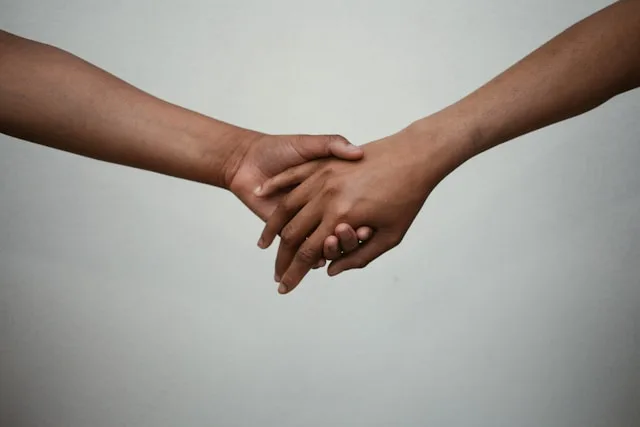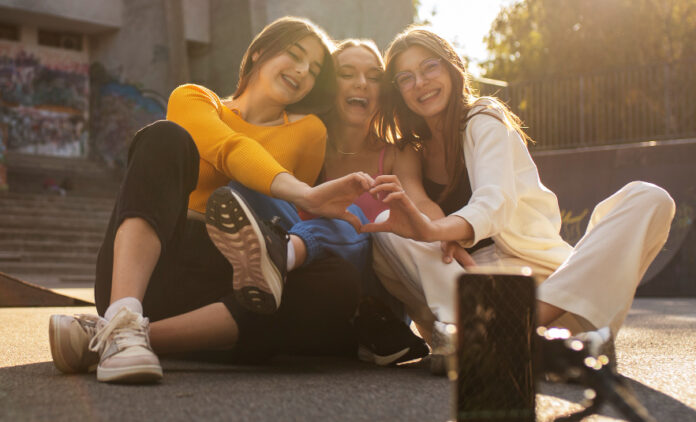For decades, pop culture and society pushed the same narrative: Happiness equals romantic love. Movies, music, and even self-help books idolised the couple. But Gen Z? They are flipping the script, and it is not just a TikTok trend.
Across campuses, cities, and online spaces, more Gen Zers are choosing deep friendships over traditional romance, and they don’t feel like they’re missing out. If anything, they’re thriving. This isn’t just a phase or a trend; it’s a genuine shift. Let’s dive into the friendship-first era and why Gen Z might be onto something big.
Romance is optional, not essential
In a 2023 Pew Research Center survey, 56% of single Gen Z adults reported that they are not currently interested in dating at all. Not “on pause.” Not “waiting for the right one.” Just not into it, at least not right now.
Gone cold: Is romance losing its spark?
Several trends are converging:
- Emotional exhaustion: From toxic dating app culture to “situationships,” romantic fatigue is real.
- Financial instability: Many Gen Zers delay relationships due to economic uncertainty.
- Prioritizing purpose over partnership: Friendship aligns more with identity exploration and emotional safety.
Key insight: Psychologist Dr. Lisa Damour notes that Gen Z places a “higher value on emotional authenticity and psychological safety,” which friendships often provide more reliably than romantic relationships.

Friendship as emotional infrastructure
Gen Z isn’t just leaning on friends for company, they are building life foundations with them.
What’s different about Gen Z friendships?
- Depth over duration: Friends are chosen for values, not proximity.
- Emotional intimacy: Conversations go beyond gossip into mental health, identity, and boundaries.
- Platonic commitment: Some even refer to their best friend as their “life partner.”
“Friendships are our chosen families. We talk about therapy, trauma, dreams. I’ve never had that consistency in dating,” says Mira, 22, from Austin, TX.
This shift reflects a cultural understanding that platonic bonds can be just as fulfilling as romantic ones, sometimes more so.
The neuroscience of belonging (friendship vs romance)
From a brain chemistry perspective, both friendship and romance light up the oxytocin and dopamine systems — the chemicals tied to bonding and pleasure. But the way they do it is different. Friendships tend to offer stable, consistent emotional co-regulation, while romantic relationships can feel more volatile — driven by passion and a higher risk-reward dynamic.
A 2021 study in Psychological Science even found that platonic touch and eye contact in close friendships can trigger similar brain responses as romantic intimacy, just without the stress and unpredictability that often come with romantic attachment.
Clinical psychologist take: “Stable friendships reduce cortisol and support emotional resilience. The predictability is therapeutic,” says Dr. Andrea Bonior, author of Detox Your Thoughts.
Tech, dating culture & why romance feels “exhausting”
Apps like Tinder, Bumble, and Hinge were once celebrated for democratising dating. But for many Gen Zers, they have become anxiety triggers.
Common complaints:
- Ghosting culture: Erodes trust and attachment security
- Gamification: Swiping leads to depersonalisation
- Emotional labor: The pressure to perform intimacy is draining
“I deleted Hinge after a guy love-bombed me then ghosted. I’ve never cried over a friend like that. With my best friends, I don’t have to be ‘chill’, I can just be real.” — Jayden, 23, London
The rise of “queerplatonic” and nontraditional bonds
Language is evolving to reflect this shift. Enter terms like:
- Queerplatonic relationships (QPRs): Deep, committed friendships that may even resemble life partnerships
- Aromantic: People who experience little or no romantic attraction, but form deep platonic bonds
These identities are part of a broader Gen Z-led movement toward relationship autonomy and narrative reframing, you don’t need to follow the romance arc to live a meaningful life.
According to The Trevor Project, over 25% of LGBTQ+ Gen Z youth identify as somewhere on the aromantic or asexual spectrum, another reason traditional romance may be less central.

Friendship & mental health: A powerful protective factor
Friendships offer more than emotional support, they are a resilience factor.
- A Harvard Health study found that strong social ties reduce the risk of depression by up to 50%.
- Gen Z’s openness around mental health, therapy, and boundaries makes friendships more emotionally rich and healing than ever before.
Unlike many romantic relationships, friendships aren’t tethered to social expectations or gender roles. They’re free-form, allowing for authentic connection.
Are romantic relationships dead? not quite, but they are changing
Let’s be clear: Gen Z isn’t “anti-love.” They are just redefining what love means.
- Some are choosing friends as life partners.
- Others date, but prioritize emotional safety and autonomy.
- Many are learning that romantic love isn’t the only path to wholeness.
“I love love,” says Nina, 24. “But I’ll never chase a relationship at the cost of my peace again. My friends have shown me what real love looks like.”
The friendship-first future
Gen Z is rejecting the “relationship or bust” mentality and embracing multi-faceted intimacy, where friendships can be just as binding, nourishing, and fulfilling as romantic partners.
And honestly? That might be the healthiest relationship trend we have seen in decades.
